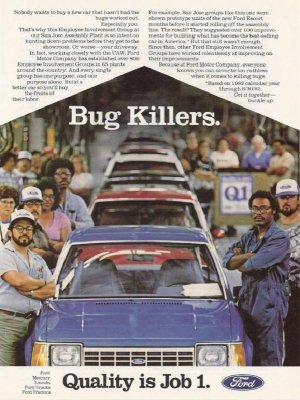From other articles I've read today, it seems GM has reported over 28,000 related incidents tied to this issue.
Having worked in the automotive industry for over four decades -- 33 of those in Quality Assurance for a car manufacturer -- I think it's too simplistic to say automakers are "still making junk." What’s happening with GM’s L87 engine appears to be more a failure of supplier quality management and escalation procedures rather than corner-cutting. The fact that this issue traces back to 2021, yet a recall only followed a formal NHTSA investigation, raises concerns about how GM responded (or failed to respond) to rising field failures.
Where I work, we maintain strong links with both the dealer network and suppliers. When serious issues arise, we dispatch a small skilled team to support dealers with diagnosis and investigation, and then follow up with suppliers to develop their countermeasures and process improvements. This type of thing is usually written in contracts with our suppliers. This doesn't look like a case of poor product as much as one of poor response and weak supplier follow-up. It comes across more like a cultural issue within an organisation -- one that feels rooted in a past era. Many OEMs have moved on from that kind of thinking. I’ll be honest, it doesn’t inspire confidence in GM’s internal processes.
In an industry where a typical car has around 33,000 individual components, a car manufacturer has to work closely with its suppliers -- slowly pulling back as the relationship develops, and expectations are understood, and done in a way that fosters openness from the supplier. A kind of, "we are in this together", kind of attitude and culture. An “it isn't us, it's them” kind of attitude will never work in car manufacturing. An us and them attitude between a business and its suppliers only fosters defensiveness. Hardly ideal where the issue at hand could impact customer safety!


